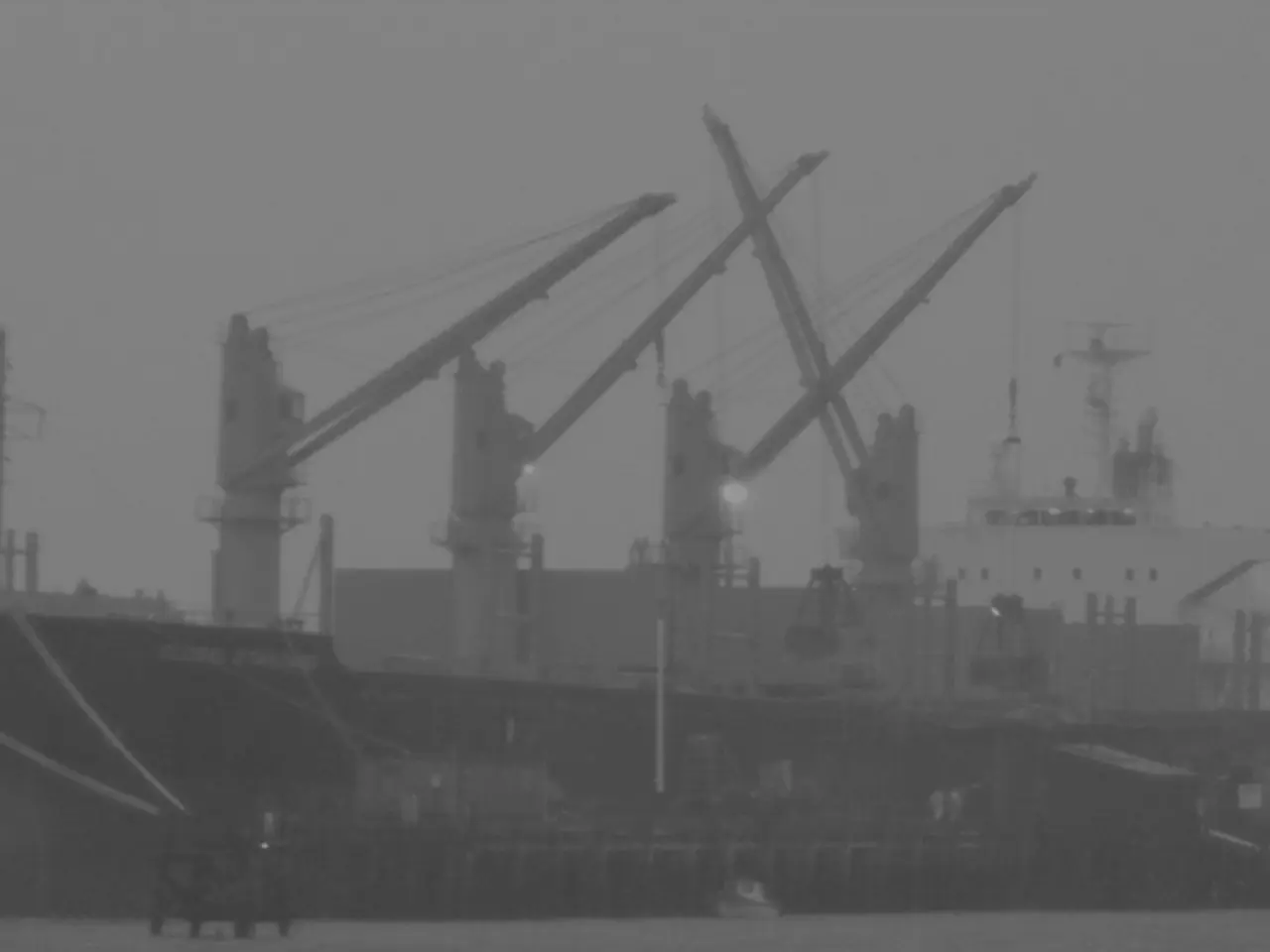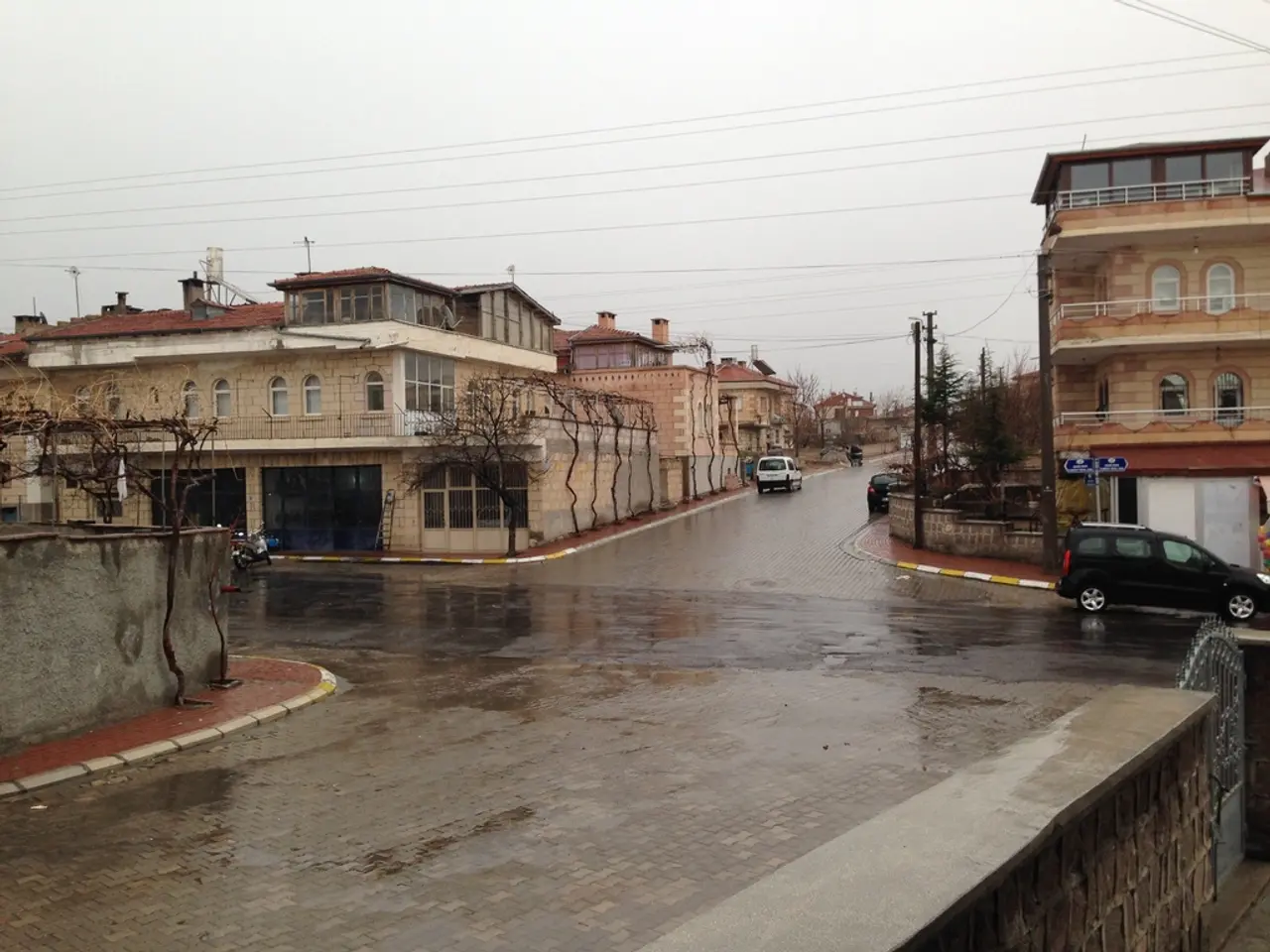Catastrophic Oil Leaks in the Black Sea Likely at Record Levels
Ongoing Environmental Crisis: The Kerch Strait Oil Spill
In late December 2024, a catastrophic oil spill occurred in the Kerch Strait, a crucial maritime corridor connecting the Black Sea and the Sea of Azov. Two aging Russian tankers, Volgoneft-212 and Volgoneft-239, both over 50 years old, broke apart during a severe storm, spilling approximately 4,000 tonnes of M-100 heavy fuel oil (mazut) into the water[1][2][3].
The spill has proven to be persistent and difficult to clean up, with contaminated oil reaching the northern Black Sea and spreading over hundreds of kilometers of coastline[1][5]. Fuel oil residues have washed up not only along the Crimean coast but also on shores as far as Russian-occupied Abkhazia, indicating a wide geographical dispersal facilitated by currents and inadequate initial containment[5].
Russian authorities have opened criminal investigations, and a government working group led by Deputy Prime Minister Vitaly Savelyev was set up for response coordination. However, containment and cleanup efforts have faced significant challenges, and the environmental damage continues[3][5].
Environmental Impact
The spilled heavy fuel oil, being thick and persistent, threatens ecosystems in the northern Black Sea, a region known for its rich biodiversity[1][2]. The spill poses risks to marine flora and fauna, including endangered species, fisheries, and habitats along the coastline and in the Kerch Strait waterway[1][2]. Due to the nature of mazut, the ecological effects are expected to be long-lasting and severe, with historical analogs suggesting damage to coastal and marine ecosystems could extend for years[1].
Impact on Regional Economies
The Kerch Strait is a strategically important maritime corridor, serving as a critical route for cargo and passenger transport through ports like Kavkaz and Kerch[4]. The contamination threatens local fisheries and tourism, both important economic sectors for surrounding regions, including Crimea, the Russian mainland, and areas under Russian occupation such as Abkhazia. The prolonged spill and environmental degradation can disrupt shipping activities and increase costs due to the need for cleanup and environmental monitoring, further straining regional economies already affected by ongoing geopolitical conflicts.
Regional Geopolitics
Meanwhile, tensions between Ukraine and Russia continue to escalate. Analysts from the Institute for the Study of War (ISW) believe that Russia is planning larger attacks on Ukraine and is increasing its defense industry's capacity for producing missiles and drones[6]. US Secretary of State Marco Rubio told Fox News that President Donald Trump is losing patience with Russian leader Putin regarding the war in Ukraine[7]. North Korea is one of Moscow's key supporters in its war against Ukraine[8].
In addition, there have been reports of attacks on civilian infrastructure in the Ukrainian region of Sumy, resulting in injuries, and the ISW estimates that Russian forces could deploy up to 2,000 drones against Ukraine in a single night by November 2025 if the current pattern of nightly Russian drone use continues[9]. The military administration of the Ukrainian region of Sumy has also reported deaths and injuries due to a mine explosion and drone attacks[10].
As the Kerch Strait oil spill continues to unfold, it serves as a stark reminder of the complex interplay between environmental disasters, regional economies, and geopolitical conflicts. The full extent of the environmental damage, economic disruption, and human suffering is expected to unfold over the coming months and years.
[1] https://www.bbc.com/news/world-europe-55528103 [2] https://www.reuters.com/world/europe/russia-says-two-tankers-have-grounded-kerch-strait-2024-12-06/ [3] https://www.reuters.com/world/europe/russia-says-it-will-deploy-more-ships-help-clean-up-kerch-strait-oil-spill-2025-01-12/ [4] https://www.portofkavkaz.ru/en/port/ [5] https://www.reuters.com/world/europe/russian-oil-spill-in-black-sea-spreads-coast-crimea-abkhazia-2025-01-13/ [6] https://www.reuters.com/world/europe/russia-wars-ukraine-isw-says-russia-planning-larger-attacks-ukraine-2025-07-27/ [7] https://www.foxnews.com/politics/marco-rubio-donald-trump-losing-patience-with-vladimir-putin-over-ukraine [8] https://www.reuters.com/world/europe/north-korea-one-moscows-key-supporters-war-ukraine-2025-07-27/ [9] https://www.reuters.com/world/europe/ukraine-says-russia-has-used-drone-attacks-sumy-region-2025-07-27/ [10] https://www.reuters.com/world/europe/ukraine-says-russian-forces-have-launched-nighttime-attack-sumy-region-2025-07-27/
- The ongoing Kerch Strait oil spill, caused by the breakdown of two aging Russian tankers, has highlighted the need for implementing stringent community policies to ensure the safety of maritime corridors, such as the Kerch Strait, and prevent similar environmental disasters.
- Climate-change and its effects, like severe storms, may exacerbate the risk of oil spills in the future, emphasizing the need for comprehensive climate-change policies in the oil and gas industry.
- Environmental science plays a crucial role in understanding the long-term impacts of the Kerch Strait oil spill on the ecosystems of the northern Black Sea, with the findings an essential reference for environmental policy-making in the region.
- The persistent environmental damage and economic disruptions caused by the oil spill underscore the need for appropriate financing mechanisms to support cleanup efforts and compensate affected industries and communities, setting an example for future disaster management policies.




